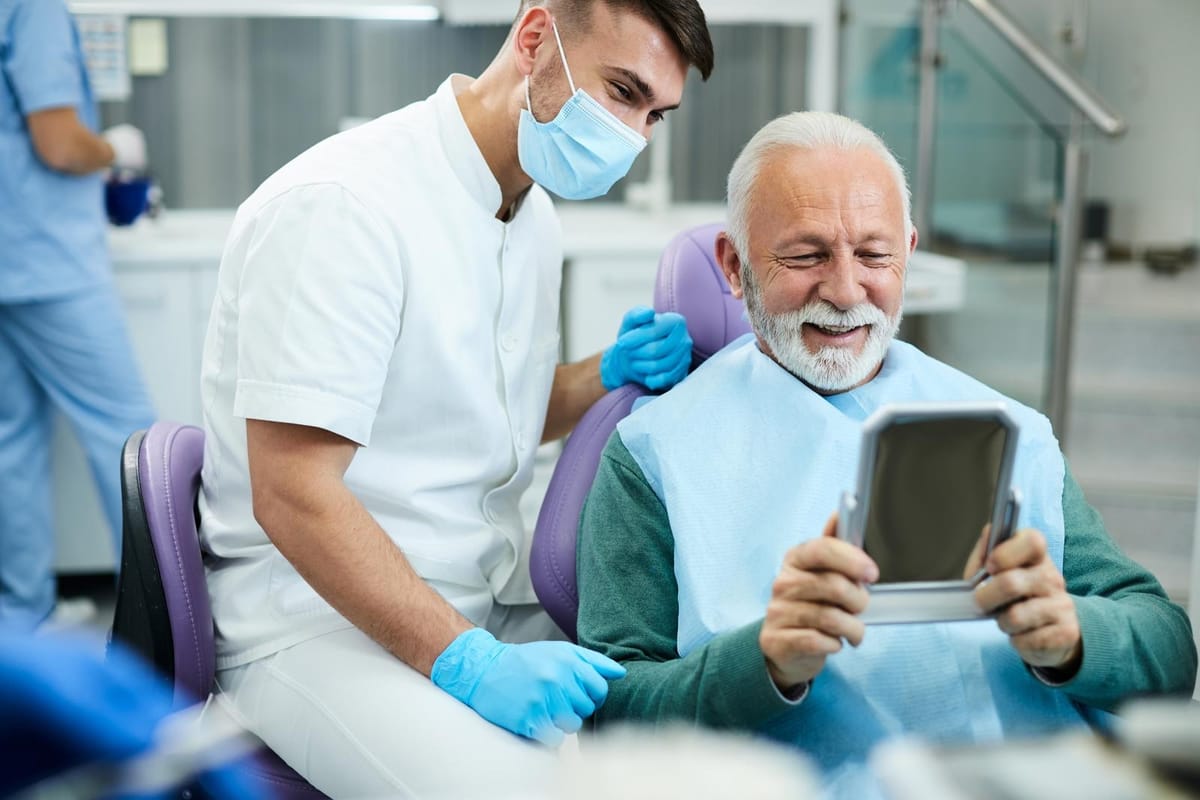

Maintaining a Healthy Smile as We Age
As we age, our bodies go through many changes, and our oral health is no exception. While maintaining good dental hygiene is crucial throughout life, it becomes even more important as we get older. This is because older adults are more susceptible to certain dental problems. Our guide will offer valuable insights and practical advice to help you keep your smile healthy and bright for years to come.
Common Dental Problems in Seniors
Seniors are more prone to experiencing dental issues such as tooth decay, gum disease, and dry mouth. These problems can lead to discomfort, pain, and difficulty eating, which can impact your overall well-being. Understanding the reasons behind these issues is essential for proactive care. Let's delve into the common dental problems seniors face.
Tips for Maintaining Good Dental Hygiene as a Senior
Maintaining good oral hygiene is crucial for preventing dental problems. Here are some essential tips for keeping your smile healthy:
Dental Checkups and Cleanings
Regular dental checkups and cleanings are vital for maintaining good dental health. Your dentist can identify early signs of problems and recommend preventative measures. We recommend visiting your dentist at least twice a year. During a cleaning, your dentist will remove plaque and tartar buildup from your teeth, helping to prevent tooth decay and gum disease. They will also check your teeth and gums for any signs of problems. Some seniors may need more frequent checkups depending on their individual needs.
Brushing and Flossing
Brushing and flossing are essential parts of good oral hygiene. They help remove plaque, bacteria, and food particles from your teeth, preventing tooth decay and gum disease. Aim to brush your teeth twice a day for two minutes each time, and floss once a day. Use a soft-bristled toothbrush and fluoride toothpaste. If you have difficulty reaching all areas of your mouth, consider using an electric toothbrush or a water flosser. Ask your dentist how many times you need to brush and floss in a day and what tools you should use.
Diet and Nutrition
The foods you eat can affect your oral health. Foods rich in sugar and starches can contribute to tooth decay, so it's important to limit your intake. You can also protect your teeth by eating a balanced diet that's rich in fruits, vegetables, and whole grains. These foods provide essential vitamins and minerals that support oral health. And, consider drinking plenty of water throughout the day as this helps rinse away food particles and bacteria.
Dry Mouth
Dry mouth, also known as xerostomia, is a common problem in seniors. It occurs when the salivary glands don't produce enough saliva, which is crucial for keeping your mouth moist and rinsing away food particles and bacteria. Dry mouth can lead to tooth decay, gum disease, and other oral problems. If you have dry mouth, ask your dentist for advice on how to manage it. There are various treatments available, such as artificial saliva and medications.
Oral Cancer Screening
Oral cancer is a serious condition, but it's often preventable. That's why it's essential to undergo regular oral cancer screenings as part of your dental checkups. If you are concerned about your oral health or you have any questions, don't hesitate to talk to your dentist.
In Summary
Maintaining good dental health is essential for your overall well-being as you age. By following the tips outlined in this guide, you can take proactive steps towards a healthy and happy smile.
Dues are $12 per year. Member benefits:
✅ Ad-Free Website Viewing
✅ Advocacy for Republican Seniors
✅ 120+ Senior Discounts
✅ Member Only Newsletters